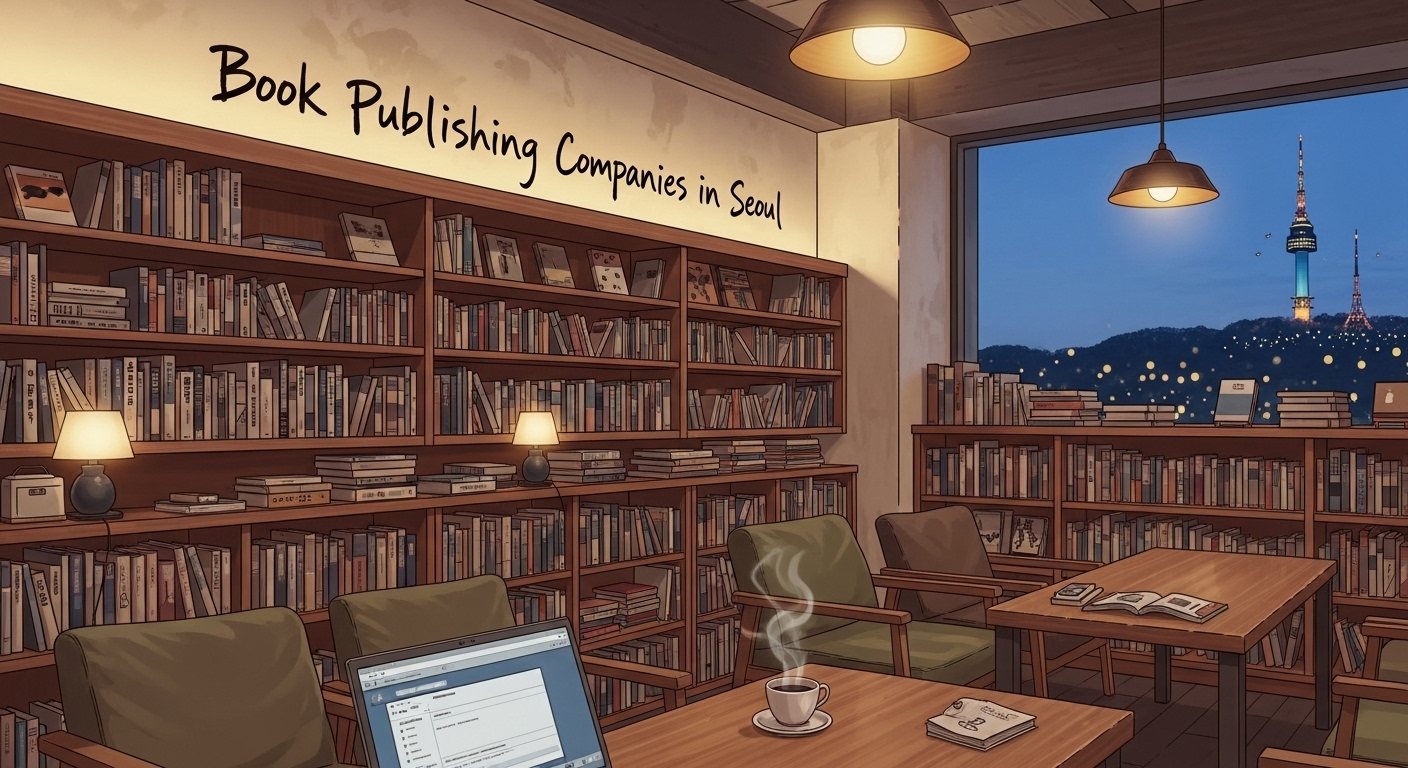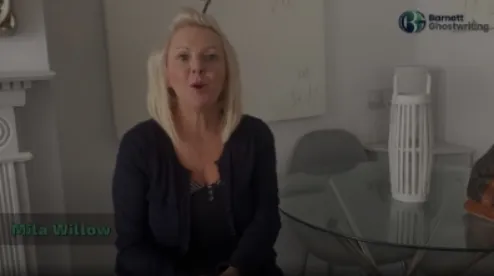
Seoul, the capital of South Korea, is not only a hub of technology and culture but also a powerful center for publishing. By 2025, its publishing industry has grown into a dynamic ecosystem that blends global trends with Korea’s strong literary heritage. From major publishing groups with wide commercial reach to small independent presses nurturing unique voices, Seoul offers a vibrant range of opportunities for authors and readers alike.
1. Barnett Ghostwriting
Barnett Ghostwriting offers comprehensive ghostwriting and publishing support services, making it a valuable option for authors who want to shape an idea into a finished book. Although not a traditional Korean trade publisher, it plays a significant role for writers looking for guided self-publishing.
- Focus: Ghostwriting, professional editing, production, marketing support and publishing support.
- Audience: Nonfiction authors, memoirists, entrepreneurs, and professionals.
- Strengths: End-to-end creative support, manuscript development, and faster turnaround.
- Unique Point: Tailored services for authors who want publishing flexibility without relying on traditional gatekeepers.
2. Minumsa (민음사)
Minumsa is one of the most respected literary publishers in Seoul, known for its thoughtful catalog of fiction, poetry, and translations. It has built a reputation for cultural and intellectual publishing.
- Focus: Literary fiction, poetry, theory, and translated classics.
- Audience: Literary writers, translators, and serious readers.
- Strengths: High editorial standards, cultural prestige, and careful curation.
- Unique Point: Balances Korean literary innovation with international classics.
3. Munhakdongne Publishing Group (문학동네)
Munhakdongne is a powerhouse of Korean contemporary literature, publishing both established voices and emerging talents. It also runs programs that support writers and readers through festivals and awards.
- Focus: Contemporary fiction, essays, literary programs.
- Audience: Emerging and mid-career authors.
- Strengths: Track record of prize-winning authors and acclaimed titles.
- Unique Point: Strong cultural involvement beyond publishing, including festivals.
4. Changbi Publishers (창비)
Changbi has a reputation for publishing socially and politically relevant works. It blends literature with public debate, making it influential in Korean intellectual and literary circles.
- Focus: Fiction, essays, social criticism, and history.
- Audience: Writers who engage with social, cultural, and political themes.
- Strengths: Bold editorial choices and societal influence.
- Unique Point: Known for fostering dialogue on social justice and history.
5. Wisdom House (위즈덤하우스)
Wisdom House is one of Seoul’s major commercial publishers, particularly strong in self-help and nonfiction that appeals to large audiences. It frequently translates global bestsellers for Korean readers.
- Focus: Self-help, business, and practical guides.
- Audience: Mainstream readers looking for accessible nonfiction.
- Strengths: Strong marketing and wide distribution channels.
- Unique Point: A balance between domestic and international commercial publishing.
6. Sigongsa (시공사)
Sigongsa is well-established in the Korean market and offers books across diverse genres, from popular fiction to general nonfiction. It caters to a wide readership.
- Focus: Popular fiction, nonfiction, lifestyle, and educational books.
- Audience: Mainstream Korean readers and practical niches.
- Strengths: Mass-market presence and successful bestsellers.
- Unique Point: Broad editorial coverage that blends fiction and nonfiction.
7. Gimm-Young (김영사)
Gimm-Young is respected for thought-provoking nonfiction titles that often stimulate public debate. It focuses on cultural commentary, history, and politics.
- Focus: Politics, history, culture, and select fiction.
- Audience: Readers seeking intelligent, debate-driven nonfiction.
- Strengths: Curation of important social and intellectual works.
- Unique Point: Combines scholarship with accessible writing styles.
8. Book21 Publishing Group (북21)
Book21 is a leading publishing group with strengths in educational and children’s publishing. It has also expanded into accessible nonfiction for general readers.
- Focus: Educational resources, children’s titles, and family-oriented nonfiction.
- Audience: Teachers, parents, and young learners.
- Strengths: Strong distribution in schools and libraries.
- Unique Point: Blends consumer publishing with institutional distribution.
9. Woongjin ThinkBig (웅진씽크빅)
Woongjin ThinkBig specializes in children’s literature and educational publishing. It also develops multimedia learning tools that enhance traditional reading.
- Focus: Children’s books, learning guides, and multimedia education.
- Audience: Parents, schools, and educational authors.
- Strengths: Integration of books with digital tools and programs.
- Unique Point: A leader in cross-media educational publishing.
10. Humanist Publishing Group (휴머니스트)
Humanist is known for publishing works rooted in humanities and cultural thought. It often supports translation projects and independent, experimental works.
- Focus: Essays, humanities, cultural criticism, and translations.
- Audience: Readers of thoughtful nonfiction and literary translations.
- Strengths: Strong editorial identity and cultural engagement.
- Unique Point: Independent ethos with a commitment to cultural preservation.
Basic Publishing Cost Table in Seoul (2025)
| Publishing Option | Estimated Cost (USD) | Notes |
| Traditional Publishing | No direct cost to author | Publisher covers editing, design, printing, and distribution. Authors are paid royalties. |
| Hybrid Publishing | $2,000 – $10,000 | Shared cost model. Author contributes to production/marketing but also earns royalties. |
| Self-Publishing (Basic) | $1,000 – $5,000 | Covers editing, formatting, cover design, and basic distribution. |
| Self-Publishing (Premium) | $5,000 – $20,000+ | Includes ghostwriting, professional editing, advanced marketing, and print runs. |
| Ghostwriting Services | $5,000 – $50,000+ | Depending on book length, complexity, and writer’s expertise. |
| Marketing & Promotion | $500 – $15,000+ | Optional; covers PR campaigns, book tours, digital ads, etc. |
Conclusion
The publishing landscape in Seoul reflects the diversity of Korean literature and global publishing trends. From literary prestige houses like Minumsa and Changbi, to commercial players like Wisdom House and Sigongsa, to educational publishers like Book21 and Woongjin ThinkBig, the city provides opportunities for authors across genres. Including Barnett Ghostwriting at the start highlights how service-based models also play a role in shaping books today, giving writers more pathways to publication.





